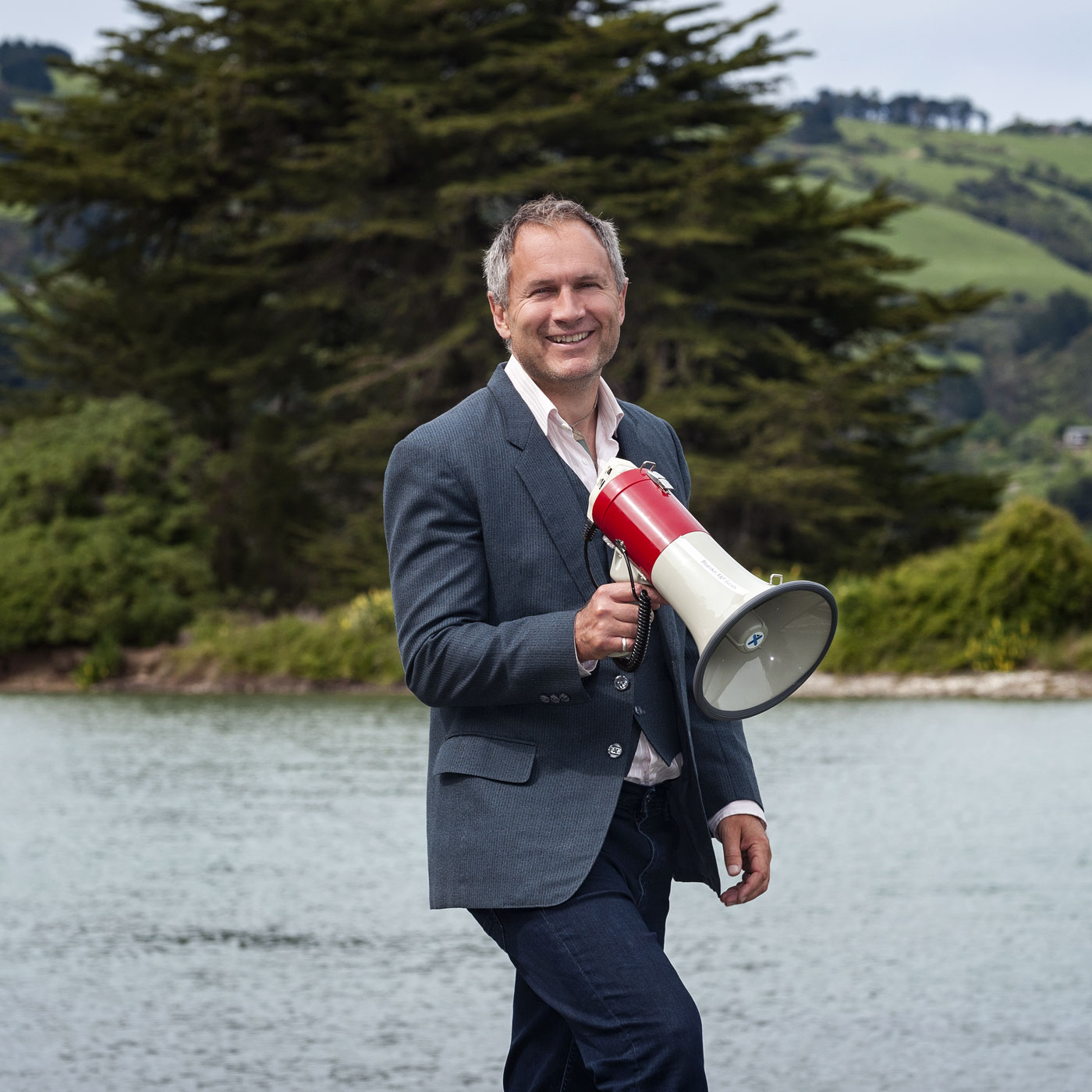'Expert' comment
part of the job
Faculty of Law Professor Andrew Geddis discusses the role of universities as the critic and conscience of society.
In May of 2019, I had the good fortune to be awarded the Gama Foundation Critic and Conscience of Society Award to recognise academics who have frequently provided the public with independent, expert commentary on issues affecting New Zealanders. Grateful and honoured as I was to be selected for this prize, I can't help but think that it was in some ways an acknowledgement of just doing my job.
(Does this then mean that I intend returning the $50,000 research funding attached to the award? Not at all! As I will suggest below, accepting that academics have a role as society's “critic and conscience” is not the same as claiming we should be saints).
You see, under the Education Act 1989, s 162(4), before an institution can be designated a university (or other tertiary provider, for that matter) it must “accept a role as critic and conscience of society”. That legislative requirement recognises that such bodies are expected to play a particular role in our society, above and beyond being “knowledge factories” that churn out academic papers, credentialed graduates and branded sweatshirts. Universities like Otago ought to be involved in evaluating, debating and proposing solutions for the various problems that society confronts.
And, of course, institutions like the University of Otago are made up of flesh-and-blood individuals that play diverse roles in enabling it to thrive. “The University” can do nothing without the active efforts of all who labour within it. Just as the University of Otago cannot meet the Education Act's mandate to “maintain, advance, disseminate, and assist the application of, knowledge” absent the research and teaching efforts of its academic staff, so too it cannot be a critic and conscience for society unless individuals within it commit to undertaking that role.
That is, in its way, the compact we enter into when we take on the academic job. Despite the ever-creeping spread of managerialism and relative decay of pay and conditions, it still represents a quite privileged position in society. Research allows us to pursue questions that we find interesting, with time to investigate matters because we want to. We get to interact with many of the nation's brightest young people, and maybe even help some of them find their passion in life. And for this we are paid a salary that allows for a comparatively comfortable standard of living.
The society that funds all of this then asks for something in exchange. Yes, we must hit our performance metrics in terms of publications, teaching evaluations and other such nonsense. But beyond this, when society finds itself facing some problem that we can speak to, we ought to actively engage in the public debate over how it should be resolved.
“Sometimes the most valuable thing we can contribute is a caution that a societal problem is much more complex and uncertain than it appears on its face.”
Of course, there may be reasonable disagreement over just how to fulfil this critic and conscience role. My view, for what it is worth, goes something like this.
First of all, accepting such a role cannot be a licence to say whatever you want on whatever you choose without potential consequences. Any idea that a university academic is some sort of morally pure, higher being whose views on any and all issues must be accepted as “the right ones” withers as soon as you attend a departmental staff meeting.
A degree of humility is required instead. As academics, we really only have one quality that “adds value” above and beyond being ordinary, concerned community members. We have become somewhat expert in our chosen fields through having had the time to study, reflect and debate in an environment that provides the freedom to follow ideas wherever they may lead.
That expertise and how it is nurtured is something that is missing from other societal institutions. Officials within government departments ultimately are subject to the political constraints of their ministerial overlords. Company employees are subject to the bottom line. General members of the public with access to the internet may only learn what the top three returns on a Google search tells them; or, even worse, what Facebook feeds to them.
As such, what we can (and are expected to) add to the public debate is what otherwise will be missing. That does not mean we need to claim we know everything about an issue. Indeed, sometimes the most valuable thing we can contribute is a caution that a societal problem is much more complex and uncertain than it appears on its face.
But if our role as academics at the University of Otago has given us expertise relevant to some social issue, then it really is a basic part of our job to bring this to the public forum. Our society has paid for us to be in a position to do so. And if we don't do so where we can, then we are welshing on that deal.
Professor Andrew Geddis' research interests include public law, rights jurisprudence and democratic theory, with a particular focus on the legal regulation of elections.
Professor Andrew Geddis: “When society finds itself facing some problem that we can speak to, we ought to actively engage in the public debate over how it should be resolved.”
Photo: Alan Dove

